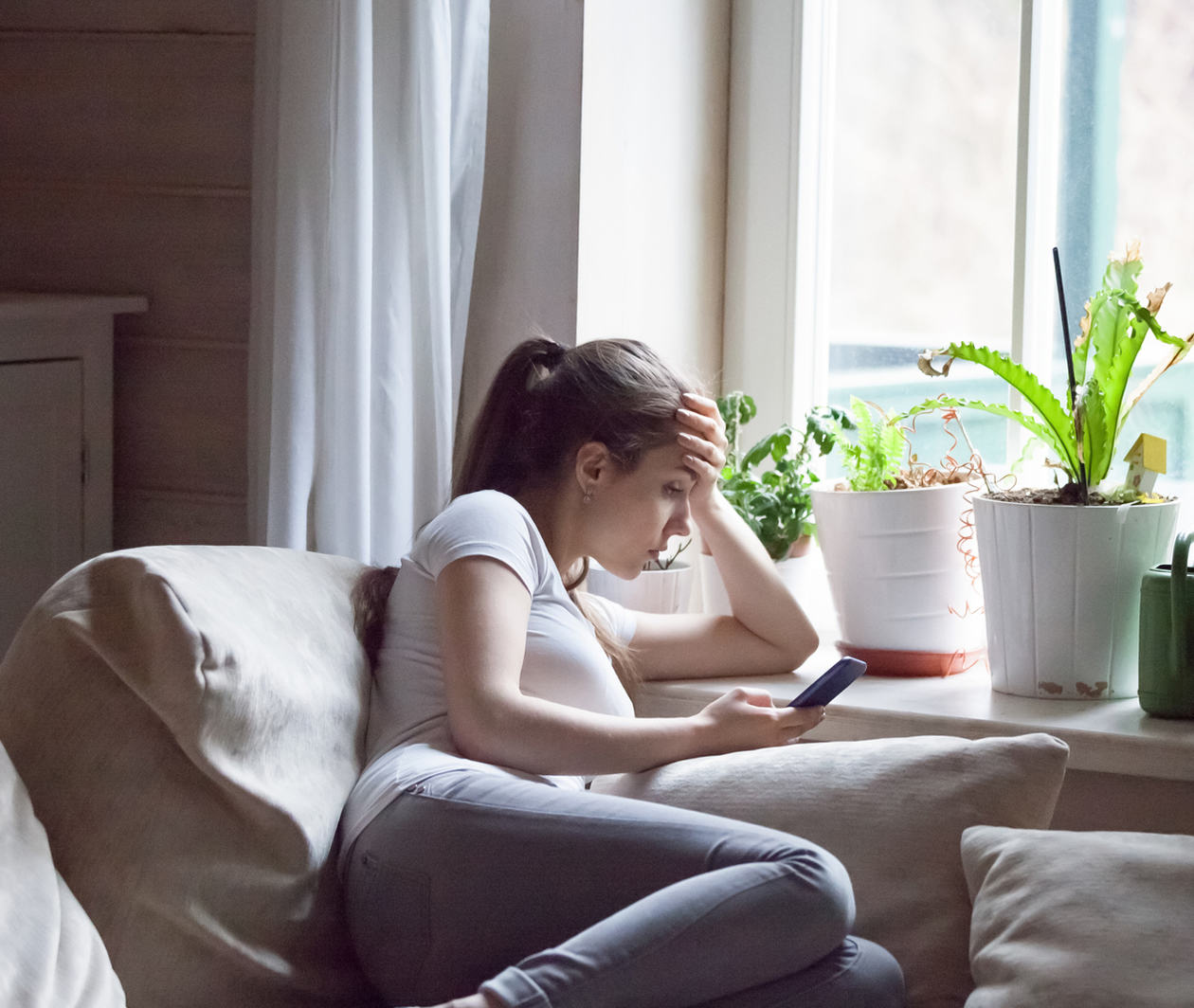Explore practical ways to help young people manage their mood and maintain healthy habits during the coronavirus pandemic.

Duration
2 weeksWeekly study
2 hoursDigital upgrade
Free
COVID-19: Helping Young People Manage Low Mood and Depression
Other courses you might like
This course isn't running right now. We can email you when it starts again, or check out these other courses you might like.
Browse more in Psychology & Mental Health
Learn how young people can manage low mood and depression during COVID-19
In an unprecedented time of upheaval and change, it’s understandable that many young people’s mental health may be particularly vulnerable.
On this course, young people, parents, carers, teachers, and other professionals can learn helpful, practical techniques to cope with low mood and depression during the lockdown period and beyond. You’ll examine how to help young people structure their day and improve sleep and diet.
You’ll explore how to build positive family communication, and learn tips on how to manage your thoughts and feelings, building long-lasting resilience along the way.
Syllabus
Week 1
Structure, healthy habits, modelling and self-care
Why is this course important?
Welcome. In this set of Steps you'll meet the Educator and Mentor team and find out what to expect from the course.
Structuring your day and promoting healthy habits
You may have found that your sleeping, eating and exercising patterns have changed. Discover tips for bringing structure and variety to your day.
The importance of modelling and self-care
It's important that you also monitor your own personal wellbeing when supporting someone with low mood or depression. Learn why in these Steps.
Summary
In this final activity, you'll reflect on the main points covered this week and hear what you will be learning in Week 2.
Week 2
Managing difficult thoughts and feelings, getting along and resilience.
Welcome to Week 2
Welcome to Week 2. Find out what topics you'll be discussing during this second week.
Tips on managing thoughts and feelings
Read tips on managing your thoughts and feelings.
Communication and getting along
The current situation may have put an added strain on communication in your household. Think about the aspects you need to consider when communicating and discuss tips on avoiding conflict.
Self-reflection and developing resilience
It's important to think about your mental well-being beyond the COVID-19 pandemic. Learn how to find opportunities to build new coping skills and resilience.
What next?
You've reached the end of this short course. Revisit some of the key points and read a list of recommended further resources to explore this topic further.
Learning on this course
On every step of the course you can meet other learners, share your ideas and join in with active discussions in the comments.
What will you achieve?
By the end of the course, you‘ll be able to...
- Identify practical ways to structure the day and promote healthy habits to increase positive mood and reduce withdrawal
- Explore the importance of self-care and modelling adaptive and mood enhancing behaviours
- Engage in strategies for managing your thoughts and your feelings during the COVID-19 pandemic
- Apply helpful communication techniques to ensure conflict is kept to a minimum
- Reflect on how you can use this time as an opportunity for developing resilience
Who is the course for?
This course is helpful for young people with low mood and depression and their parents and carers, or anyone who has contact with young people during COVID-19.
Who will you learn with?
I'm a Clinical Psychologist & researcher. Much of my work is with parents of children & adolescents who are experiencing mental health problems. I’m passionate about supporting and empowering parents.
I am a psychologist conducting research on anxiety and depression in young people. My work focuses on how young people develop mental health problems, and how we can prevent or treat them.
I head up a number of educational outreach projects and am interested in spreading knowledge about evidence-based therapies for common mental health difficulties such as anxiety and depression.
What's included?
University of Reading are offering everyone who joins this course a free digital upgrade, so that you can experience the full benefits of studying online for free. This means that you get:
Learning on FutureLearn
Your learning, your rules
- Courses are split into weeks, activities, and steps to help you keep track of your learning
- Learn through a mix of bite-sized videos, long- and short-form articles, audio, and practical activities
- Stay motivated by using the Progress page to keep track of your step completion and assessment scores
Join a global classroom
- Experience the power of social learning, and get inspired by an international network of learners
- Share ideas with your peers and course educators on every step of the course
- Join the conversation by reading, @ing, liking, bookmarking, and replying to comments from others
Map your progress
- As you work through the course, use notifications and the Progress page to guide your learning
- Whenever you’re ready, mark each step as complete, you’re in control
- Complete 90% of course steps and all of the assessments to earn your certificate
Want to know more about learning on FutureLearn? Using FutureLearn
Learner reviews
Learner reviews cannot be loaded due to your cookie settings. Please and refresh the page to view this content.
